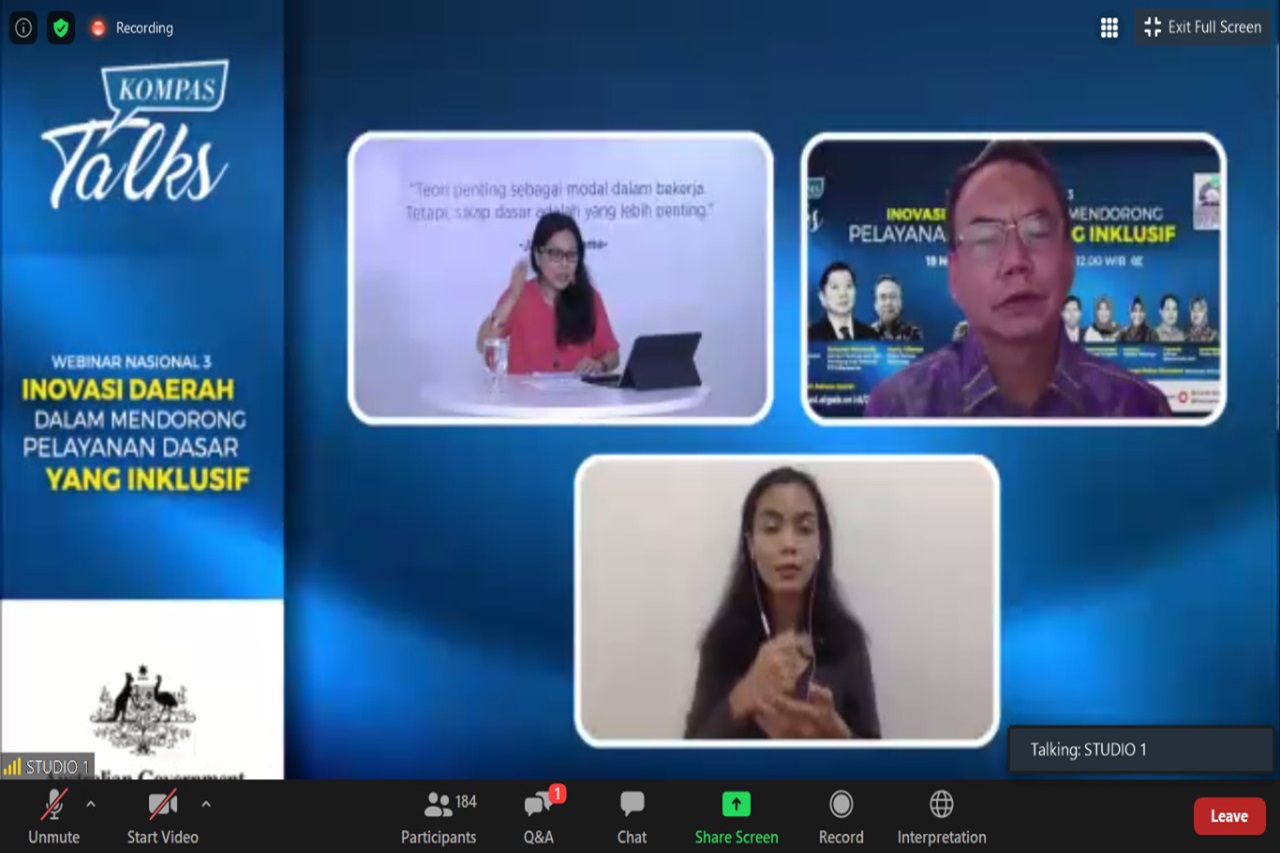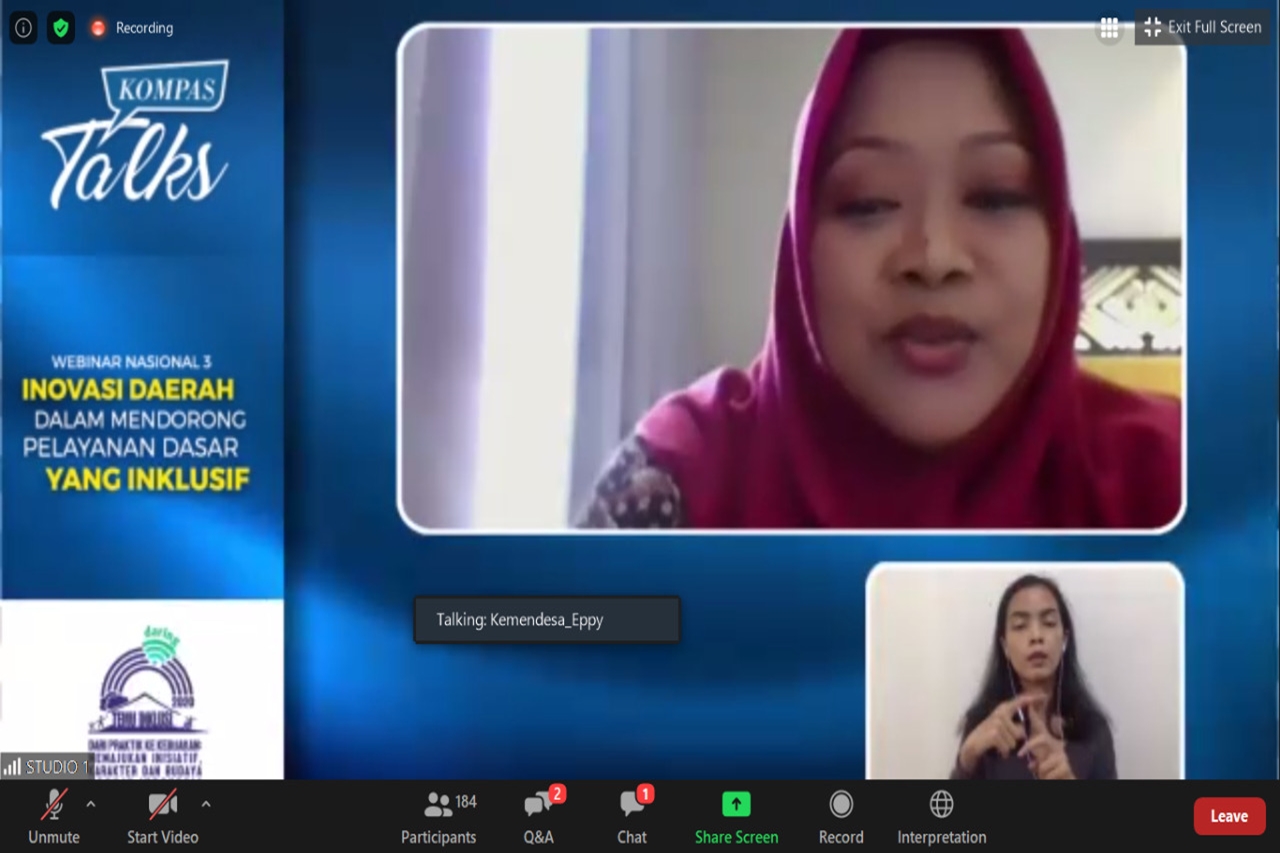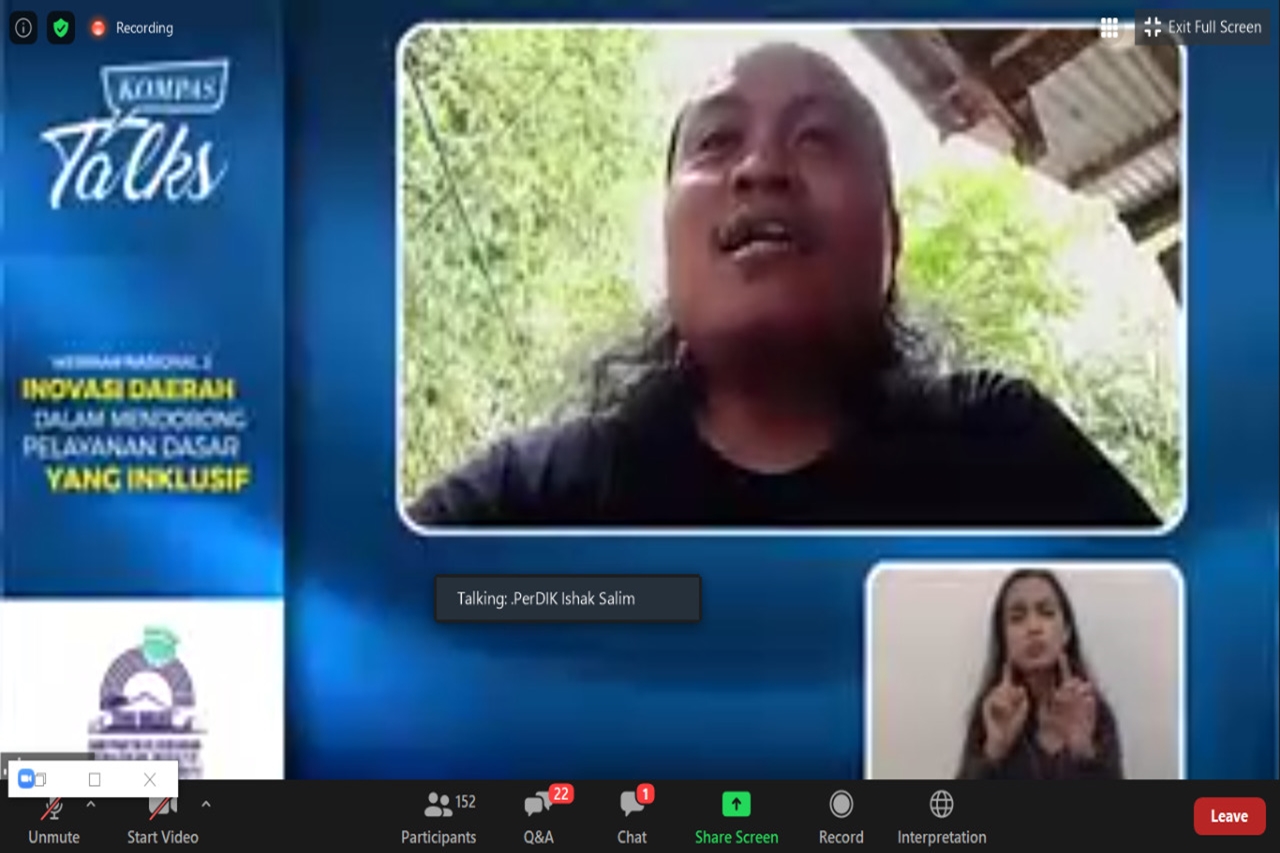JAKARTA (November 19, 2020) - Inclusive development is aimed at ensuring that all community groups have access to public services and become independent, including children, the elderly and people with disabilities. The principle of inclusive development provides an opportunity for all elements of government and society to be involved in the development phase.
Director General of Social Rehabilitation of the Indonesian Ministry of Social Affairs Harry Hikmat attended the webinar "Regional Innovation in Encouraging Inclusive Basic Services" organized by Bappenas in collaboration with Kompas media. The webinar was opened by the Minister of National Development Planning, Suharso Monoarfa, who gave directions on a roadmap to realize disability-inclusive development in Indonesia.
The Director General of Social Affairs conveyed the need for a commitment to data collection from below through trained operators so that they can ensure that data for persons with disabilities is entered.
"The Data and Information Center (Pusdatin) of the Ministry of Social Affairs has adjusted the Integrated Social Welfare Data (DTKS) in the Next Generation Social Welfare Information System (SIKS NG) based on various disabilities based on Law Number 8 of 2016 concerning Persons with Disabilities," said Harry.
To ensure broad community involvement, in DTKS there is a special module for DTKS Needing Social Welfare Services (PPKS) for persons with disabilities which adopts the format of the national disability data collection instrument.
"Currently our baseline is the same, all ministries/agencies related to disability data collection must uniformly include the four types of disability as our common reference so that the data is not separated. accessible to persons with disabilities,” he explained.
The Ministry of Social Affairs through the Directorate General of Social Rehabilitation has a new platform in 2020, namely Social Rehabilitation Assistance (ATENSI) for Persons with Disabilities in the form of social rehabilitation services that use a dynamic, integrative and complementary family-based, community and residential approach.
ATENSI for persons with disabilities includes strengthening socio-economic inclusion for persons with disabilities during the adaptation period to new habits. The Ministry of Social Affairs has made four efforts in this regard, namely meeting basic needs through the provision of Basic Food Assistance, Cash Social Assistance (BST), Regular PKH Social Assistance, Social Assistance for Persons with Disabilities (ASPD) and Rice Social Assistance for non-PKH.
Furthermore, efforts to strengthen socio-economic resilience affected by COVID-19 through the Sheltered Workshop-based entrepreneurship program for persons with disabilities and support for productive economic business stimulus support for persons with disabilities.
In order to maximize results, the Ministry of Social Affairs also makes efforts to increase the capacity of persons with disabilities in various forms of work skills and entrepreneurship programs through vocational programs.
The importance of innovation in promoting inclusive basic services is explained by the Director of Poverty Reduction and Community Empowerment of Bappenas, Maliki. "The new paradigm requires the central government and regional governments to continue to provide basic services. We must ensure that people with disabilities can really play an active role in terms of planning and implementing development," said Maliki.
"The limitations of persons with disabilities are influenced by two factors, including parental awareness and participation in development planning, which are still limited for persons with disabilities," he added.
Good practice in inclusive basic services is expressed by the Pekalongan Regency Bappeda with a program to reduce the gap in access to education for children with disabilities through the KUDU School Movement (Back Efforts for Support for Schools).
They have service innovations with three solutions, namely a clear mechanism and division of roles at all levels, commitment and support from stakeholders and support from parents, schools and the community so that Out of School Children (ATS) return to school.
Then followed by good practice from Trenggalek Regency which was explained by the Head of the PPPA Social Service, Ratna Sulistyowati with the "MUSRENA KEREN" program (Women, Children, Disability, and Vulnerable Groups) in order to have access, benefits, participation, and control in participatory development and structured and as an effort to build a more inclusive “No One Left Behind” for all.
In terms of population administration, the good practice of the Head of the Aceh Population Registration Service, T. Syarbaini, with the "Gampong-Based Population Administration Service" program brings population administration services closer, especially for people with disabilities, the poor and vulnerable. The Gampong Registration Officer (PRG) can facilitate the application for ownership of population documents such as Birth Certificates, Death Certificates, Family Cards (KK) or Identity Cards (KTP).
 English
English
 Bahasa
Bahasa



